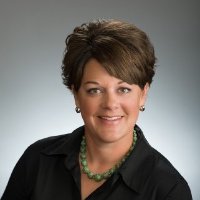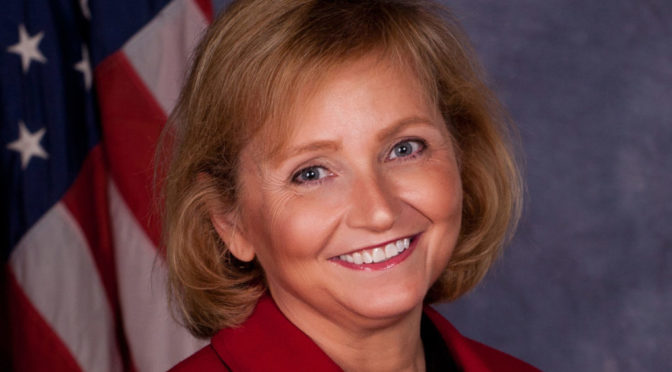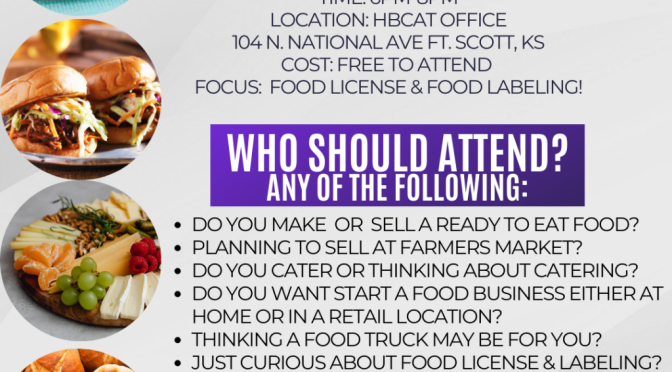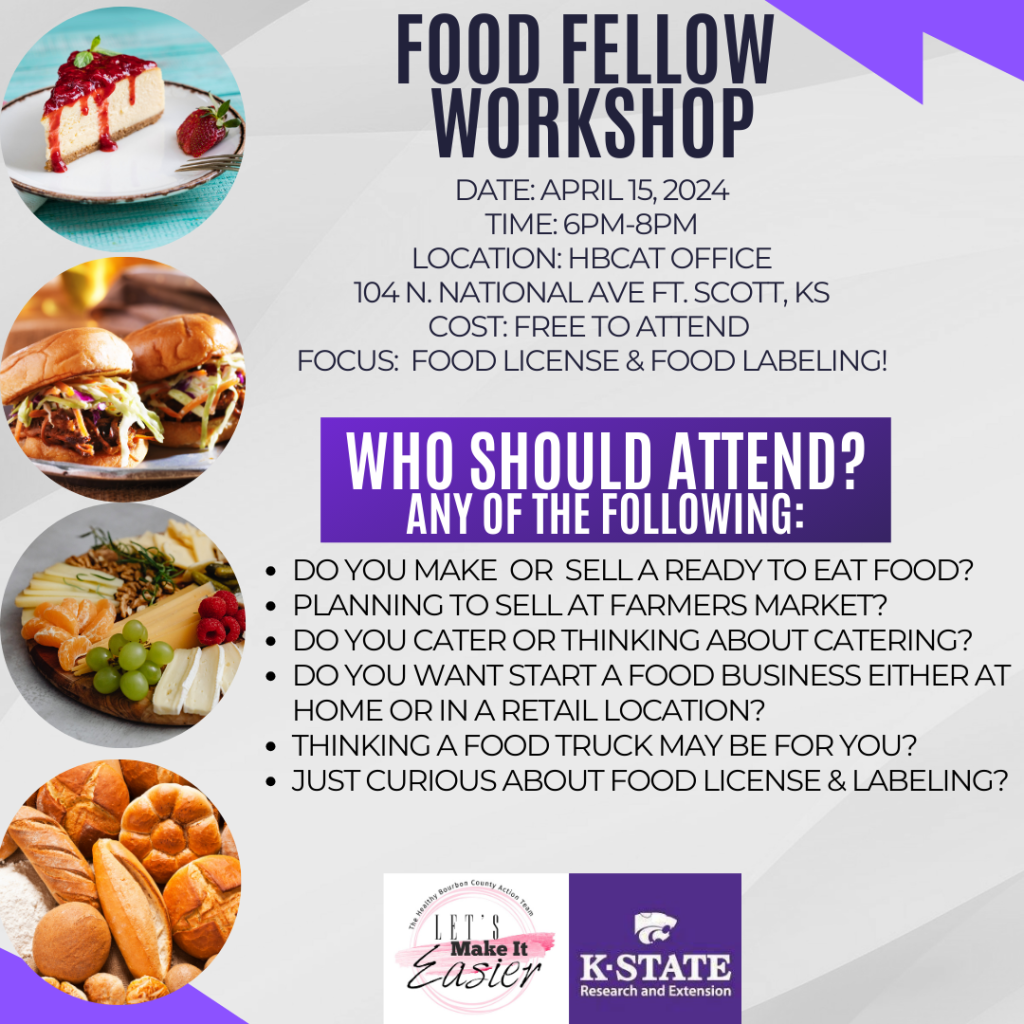|
||||||||||||||||||||||||||||||||||||||||||||||||||||||||||||||||||||||||||||||
Category Archives: Kansas
Kansas Responds to Concerns about HPAI in Dairy Cattle
FDA Studies Confirm Safety of Pasteurized Milk
MANHATTAN, Kansas — The Kansas Department of Agriculture has been actively working with the Kansas dairy industry to respond to the nationwide concerns due to the discovery of highly pathogenic avian influenza (HPAI) in dairy cattle. KDA has also been closely following the U.S. Food and Drug Administration’s testing of the commercial milk supply, which on Friday confirmed the effectiveness of the pasteurization process.
The KDA Division of Animal Health is helping dairies and veterinarians to understand and comply with the Federal Order from the U.S. Department of Agriculture’s Animal and Plant Health Inspection Service (USDA–APHIS) which took effect on Monday, April 29, 2024. The order requires lactating dairy cattle to receive a negative test for the virus prior to interstate movement. It also requires laboratories and state veterinarians to report positive results to USDA–APHIS.
These measures were instituted in an effort to further protect the U.S. livestock industry from the threat posed by HPAI. The Federal Order came two days after the Kansas Animal Health Commissioner, Dr. Justin Smith, issued a state order that expanded requirements for interstate or intrastate movement of lactating dairy cattle to include a recent health certificate (CVI).
In March, KDA announced that HPAI was identified in two commercial dairy herds, and early April there were two additional herds in Kansas that reported positive tests. Data appears to indicate that the virus is no longer present after 21-30 days, which has already passed for the positive Kansas herds.
Farmers and ranchers in Kansas have been advised to practice good biosecurity measures to protect their susceptible animals from being exposed to HPAI. This includes limiting movement of vehicles and visitors on and off the premises, separating domestic and wild animals as much as possible, minimizing movement of cattle, and monitoring animals for clinical signs of HPAI.
On Friday, the FDA reaffirmed its confidence that the commercial milk supply is safe. Their national commercial milk sampling study conducted over the last few weeks confirmed that pasteurization is effective in inactivating HPAI in milk. The pasteurization process of heating milk to a high temperature ensures milk and dairy products can be safely consumed. In line with long-standing policy, the Centers for Disease Control and Prevention does not recommend consuming unpasteurized milk or raw milk. Dairies are also required to only allow milk from healthy animals to enter the food supply chain.
Updates on HPAI in Kansas, including the Commissioner’s Order issued on April 22, can be found on the KDA Division of Animal Health webpage dedicated to HPAI detections in livestock: www.agriculture.ks.gov/HPAI-
The Kansas Department of Agriculture is dedicated to serving Kansas farmers, ranchers, agribusinesses and the consumers/customers they serve while promoting public health and safety, protecting animal health, and providing consumer protection and food safety to the best of our ability.
###
Backyard Birding – Tips for Attracting Hummingbirds
In the last week or so, I’ve seen several posts on social media that the hummingbirds have arrived! Feeding the hummingbirds is one of my favorite activities. If you are an avid feeder or are just thinking about getting started, here is some information to attract more to your home.
Although there are approximately 360 species of hummingbirds between North and South America, 99.99% of all hummingbirds found in our area will be the Ruby-throated. Their furious spring migration starts in April and continues until early May. Once the migration is complete, hummingbirds settle into nesting mode.
Nests are built in June, with the female determining the site location. The Ruby-throated hummingbird nests will be built near the tip of a down-sloping tree branch with a fairly open area below and the canopy above. Popular tree species for nest building include oak, yellow birch, pine and hackberry. Hummingbirds generally prefer deciduous tree species over conifers. The nesting site will be determined based upon availability of nectar sources and insects. The nests are small – no larger than the size of a quarter!
When it comes to food sources, hummingbirds are attracted to the color red. It is like a flashing neon on sign to them. To prove this point, try putting on a red cap or shirt and sit quietly near a feeder. The hummingbirds will definitely check you out! However, hummingbirds do feed on more than just red flowers.
Any flowering plant that has a trumpet-style flower and is in the red/orange sector of the color spectrum will be quite attractive to hummingbirds. In his presentation, Chuck highlighted several plants to include in your landscape to bring in the most birds. The list included: traditional red Salvia, Agastache, Scarlet runner bean, Cardinal flower, Beebalm, Trumpet Creeper (only if you have lots of space), Butterfly Bush, Hollyhock, Rose of Sharon, Cardinal Climber and Canna.
In southeastern Kansas, our feeders need to be up and open for business by the second week of April. Here are several tips for feeder management:
- You CAN’T have too many feeders!
- Don’t fill feeders completely full – clean at each filling
- If hummingbirds are not emptying feeder – change nectar and clean every 2-3 days
- Do not dye the water red – just a small amount of red on the feeder is all you need
- Artificial nectar – 4 parts water, 1 part sugar
One eight ounce feeder will fulfill the daily energy needs of 40 to 60 hummingbirds. By having more feeders available, this will allow the hummingbirds to feed more easily with less stress. Also, it will decrease the likelihood of territorial fighting. If you’ve fed hummingbirds in the past, then I’m sure you know all about the one that seems to be the gatekeeper at the feeder!
In casual conversations, you might hear someone say that they have no hummingbirds over the summer, while others seem to be overrun with hummers. This could be due to “neighborhood feeder saturation.” Basically, this is when the number of feeders within a geographic area exceeds the biological needs of the hummingbirds present which spreads the birds out. Populations of birds can be cyclical – you can have hummers for several summers and then those birds go elsewhere or don’t survive the winter. However, in a year or two, the population will probably cycle back around.
If you have no hummingbird activity by late May or early June, you may just want to take the feeders down until early August. The south bound migration usually starts in late July or early August. Many bird watchers indicate that August and September are actually their best months.
Krista Harding is a K-State Research and Extension Horticulture agent assigned to Southwind District. She may be reached at [email protected] or 620-244-3826
K-State Research and Extension is an equal opportunity provider and employer.
KS High-Speed Internet Plan Offered to Underserved Areaas
|
Governor Signs Kansas Budget Bill
Governor Kelly Signs Balanced Budget Strengthening Workforce and Economic Development Opportunities;
Addressing Water Issues
TOPEKA – Governor Laura Kelly today signed the state’s budget, Senate Bill 28, which allocates funding for Fiscal Years 2025, 2026, 2027, and 2028. The budget makes expenditures to continue the Kelly administration’s progress to make Kansas the best place to live, work, and raise a family.
“Thanks to the work we have done to get our state’s economy where it is, we can use our record surplus to make a positive impact on communities across the state,” Governor Laura Kelly said. “The investments we make now in our infrastructure, our workforce, and our economic development put Kansas on a path of continued growth.”
The budget:
- Makes critical investments in water projects and programs: The budget continues the state’s historic $35 million yearly investment in water infrastructure, conservation, and quality programs across Kansas. It also pledges an additional $10 million specifically for drinking and wastewater infrastructure projects in communities of less than 1,000. This funding will be essential to ensuring our small, rural communities have access to a clean and reliable water supply for years to come.
- Strengthening economic development opportunities: The budget includes economic development projects that invest in communities in every region of the state. It also makes investment in industrial park projects, the infrastructure that is needed to get product to market, and moderate-income housing. These are key to attracting the jobs and workforce needed for communities looking to grow.
- Ensures Kansas has a robust workforce and increases funding for post-secondary education: Provides historic funding to workforce training programs and post-secondary education to prepare students to enter the workforce for good-paying, in-demand jobs. When looking to put down roots or expand operations, businesses are looking for states that have a high-skilled, well-prepared workforce.
- Invests in state employees: Provides pay raises to state employees to make state employment wages more competitive to the equivalent private sector work. Competitive wages are a step toward shrinking the number of unfilled state jobs and retaining employees.
Governor Kelly also line-item vetoed aspects of the budget. Find more information and her veto messages here.
###
Veteran grant manager to lead Kansas Infrastructure Hub
|
|
|
Legislative Update by State Senator Caryn Tyson
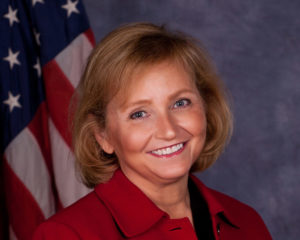
April 19, 2024
Regular Session Ends with many pieces of legislation being sent to the Governor’s desk – too many to cover in this update. All legislation can be found at www.kslegislature.org. Here are some highlights of changes in law that have passed both chambers and signed by the Governor:
- SB 336 removes the requirement that underground storage tank operating permits are renewed annually. It passed the Senate unanimously.
- SB 399 changes the deadline for vehicle sales reports from the 20th to the 25th of each month for vehicle dealers and for salvage dealers. It passed the Senate unanimously.
- SB 424 establishes the Kansas Plan Coordinate System by adopting the National Oceanic and Atmospheric Administration’s National Geodetic Survey. It passed unanimously.
- SB 430 substantially increases workers compensation and provides coverage for members of the Kansas National Guard. It passed unanimously.
- HB 2453 puts Kansas in an interstate Dentist and Dental Hygienist Compact so they could practice in other states that are in the program. It is our state allowing another group to decide the parameters for Kansas. I do not support these efforts, as Kansas is a sovereign state and we should govern as such. The bill passed the Senate 38 to 2.
- HB 2536 establishes SOUL as a permanency legal option for children who are 16 or older. It passed the Senate unanimously.
- HB 2604 increases the Small Claims court maximum from $4,000 to $10,000. It hadn’t been changed since 2004. It passed unanimously in the Senate.
- HB 2783 prohibits any state agency, city, or county from restricting the use or sale of motor vehicles based on the energy source of the vehicle. It passed the Senate 25 to 15. I voted Yes.
Veto Session begins with 12 bills vetoed. That number could increase as the Governor hasn’t responded to the mega tax relief bill or other legislation. The legislature could start voting on veto overrides April 26th. You would think it would be fairly easy to override the vetoes, but there are 165 legislators, and some are not always able to make it to the Capitol. In my years of service, I have not missed a day of session. It is not always easy because life happens, but I am committed to representing you. Thank you for your support and the opportunity to serve.
It is an honor and a privilege to serve as your 12th District State Senator.
Caryn
KDOT videos series brings voice to work zone awareness
|
|
|
Legislative Update by State Senator Caryn Tyson
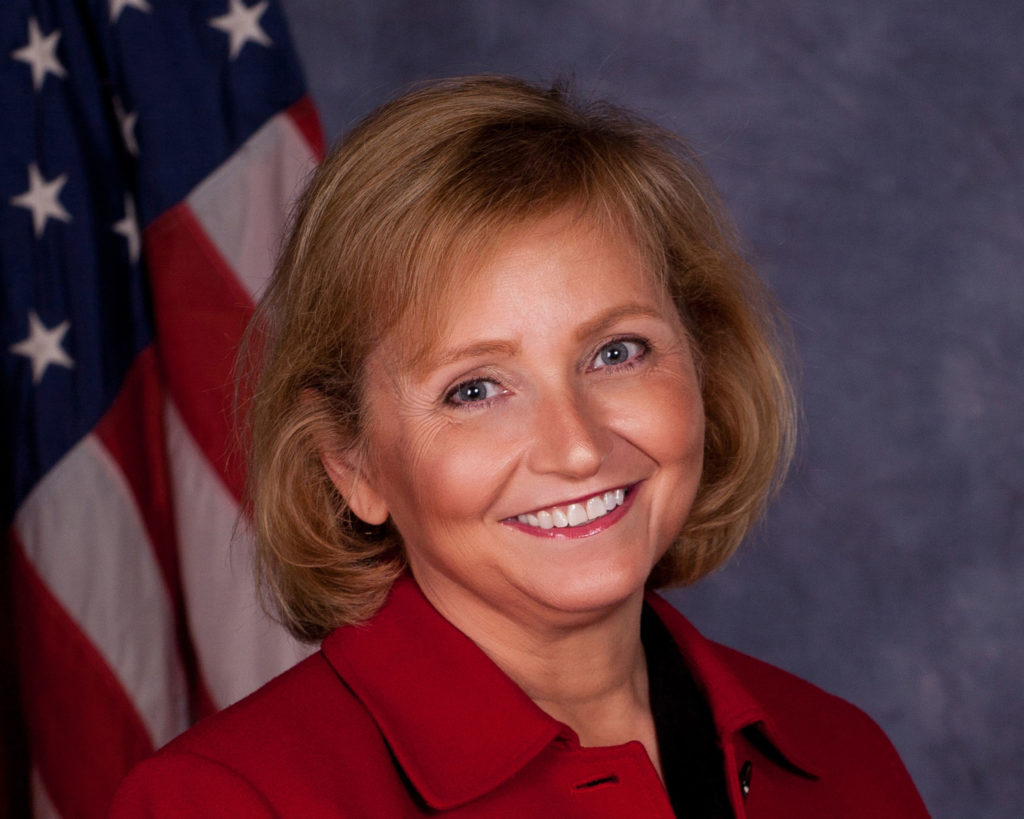
April 12, 2024
Property Tax Relief was passed by the Senate in Conference Committee Report (CCR) 2096, but hit a brick wall in the House. The provisions include:
- Expand the property tax freeze for seniors and disabled veterans so more people qualify
- Eliminate personal property taxes on items not used for business purposes, such as off-road ATVs, 15,000 lbs. trailers, motorized wheelchairs, bicycles, scooters, watercraft, and golfcarts
- Veterans’ Valor property tax relief program providing for totally disabled and unemployable
- Provide the current year and a four-year lookback on property valuation notices
- Allow payment under protest and appealing valuation in the same year if new evidence is provided
- Establish government competition property tax exemption
- Clarify 1031 exchange, build-to-suit, or sale/leaseback are not used establishing fair-market value
Property tax provisions in CCR 2096 will help many, especially seniors in need and disabled veterans. However, the House believed inaccurate information that there are two provisions for the rich and big businesses. The government competition piece is to stop governments from running a business that directly competes with businesses. It is a problem and this legislation is a shot across the bow to try to stop this practice. It is narrowly crafted for day-cares, health clubs, and restaurants within a city or 5 mile radius, but will most likely be expanded to include hotels/motels at some point. Topeka City Council bought and is running a hotel. Taxpayer funded lobbyist, such as the Kansas County Commissioners and the League of Municipalities opposed the legislation, but they offer no solution. The business has to be in existence before the government started a competing business. The State Constitution exempts government from property taxes, so it makes sense to provide directly competing businesses the same benefit, until the government stops running or sells the business. The other provision taxpayer lobbyists are against is making it clear that the value of property should be considered, not the rent or income the property generates. Would you want your income to be considered in the value of your home? All of the provisions in the bill deal with property tax. The House voted to send CCR 2096 back to conference committee.
Leadership may or may not allow the conference committee to meet again and if not, the CCR will be lost this year unless the House does a motion to reconsider the first day we return for veto session. The House could pass the CCR and send it to the Governor, since it has passed the Senate 23 to 14. I voted Yes.
I agree that each bill should pass on its own, but all of this legislation did not pass both chambers, so the only chance for it to pass this year is in a CCR. The conference committee put legislation together in CCRs by topics – property tax, sales tax, administrative, pro-life, and such. The only tax committee CCR that did not pass both chambers was CCR 2096.
I have worked diligently on provisions in this CCR, property tax relief for seniors, disabled veterans, and the personal property tax exemptions for all. Let’s hope we don’t lose the CCR and that the House or the Governor doesn’t throw the “baby out with the bathwater”, and focus on all the good in this CCR.
Governor’s Veto Pen could break last year’s record number of 17. There was also a record number of veto overrides last year. Because the last day of session was early, there wasn’t a chance to override all of the vetoed legislation and that could happen this year, including CCR 2096 if the House were to pass it. There was an attempt to override 14 of the 17 last year. Eight of the overrides were successful. There have been 6 vetoes this year: 2436, making it unlawful to force an abortion; 2446, making it unlawful to ban plastic bags; 2749, requiring reporting of each abortion; 2648, requiring impact statements of rules and regulations that have the force of law; 233, prohibiting sex changes of minors; and 434, exempting sugaring hair removal from cosmetology requirements. It takes 2/3 majority in each chamber to override a veto.
It is an honor and a privilege to serve as your 12th District State Senator.
Caryn
Boys State of Kansas Offering College Credit, Scholarships for Attendees
April 15, 2024 — The American Legion Boys State of Kansas has announced a partnership with Kansas State University to offer attendees of the leadership program three hours of college credit at a significant discount. This year’s ALBSK will be held Sunday, June 2, through Saturday, June 8, on KSU’s campus in Manhattan. This will be the program’s 32nd consecutive session at KSU and 86th overall.
Kansas State is offering two sections of Introduction to Political Science (POLSC 110) specifically for Kansas Boys State attendees. Attending KBS will fulfill a portion of the course requirements with additional course work assigned by the instructor, Nate Birkhead, Ph.D., associate professor of political science. KBS attendees wishing to take advantage of this course will be enrolled as a KSU student, but they do not have to attend K-State as the credit hours will be transferable. The tuition for the course will be $366 (payable to K-State), a nearly 70 percent savings over the regular three-hour online tuition rate of $1,181.25. KBS attendees should contact their school guidance counselor to enroll in the course.
In addition, Kansas Boys State attendees also have the opportunity to earn two scholarships — the Samsung American Legion Scholarship, worth up to $10,000, and the Boys State of Kansas Director’s Scholarship, worth up to $1,500. For more information on the Samsung Scholarship, visit legion.org/scholarships/samsung; for more information on the KBS Director’s Scholarship, e-mail [email protected] or call (785) 550-6492.
The American Legion Boys State of Kansas program provides a relevant, interactive, problem-solving experience in leadership and teamwork that develops self-identity, promotes mutual respect and instills civic responsibility to inculcate a sense of individual obligation to community, state and nation. Boys State is a “learning by doing” political exercise that simulates elections, political parties and government at the state, county and local levels, providing opportunities to lead under pressure, showcasing character and working effectively within a team. It’s also an opportunity to gain pride and respect for government, and the price paid by members of the military to preserve democracy.
The ALBSK program is for individuals who will complete their junior or sophomore year of high school in the spring just prior to the start of each session. The cost to attend Kansas Boys State is $375; however, in many instances, sponsors pay the majority of the fees, with the delegate or the family paying $50. Those wishing to attend the 2024 session should visit ksbstate.org to apply. The deadline to apply for the 2024 program is Tuesday, April 30; applications are accepted after that date, but on a space-available basis. Potential sponsors, such as American Legion posts, civic organizations, businesses, clubs and interested individuals should visit ksbstate.org/sponsor-a-delegate. Questions? Contact the ALBSK at [email protected] or (785) 550-6492.
For information about the 2024 American Legion Auxiliary Sunflower Girls State, which will be held Sunday, June 2, through Friday, June 8, at the University of Kansas in Lawrence, visit ksgirlsstate.org.
— #KSBoysState —
The American Legion Boys State of Kansas is an interactive simulation that teaches high school seniors-to-be the value of democracy and civic duty. Participants form mock governments and campaign for positions at the city, county and state levels. After the elections, participants find out firsthand the difficult decisions made daily by those in government through a series of challenging simulations. Delegates, nominated to attend by their high school counselors and other influential people in their lives, are sponsored by American Legion posts and various civic organizations from across the state. All delegates demonstrate outstanding leadership qualities in student government, athletics and/or other activities.
The Boys State program was founded by Legionnaires Hayes Kennedy and Harold Card in Illinois in 1935, and was first held in Kansas two years later in Wichita. The Kansas program moved to the University of Kansas in Lawrence in 1963 and remained there until 1991. The following year, it moved to its current location at Kansas State University in Manhattan. For more information about the American Legion Boys State of Kansas, visit ksbstate.org.
Kelly Perry: Kansas State Food Fellow Offers Free Workshop For Local Food Sellers
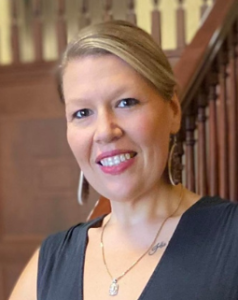
Kelly Perry answered a job ad from the Healthy Bourbon County Action Team posting in October, 2023 for a local food fellow position.
“People know me and know I’m willing to help if I can,” she said. “Sometimes people get intimidated or scared of the inspectors or do not know who to contact to ask the questions so that leads them to me. I, for one, have had to attend countless seminars, online Zoom meetings, and hours of reading to learn about my family’s business Perry’s Pork Rinds, and our food laws and regulations.”
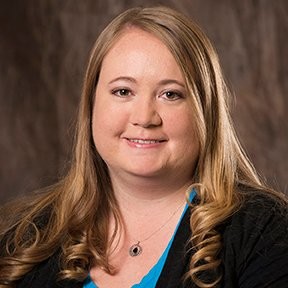
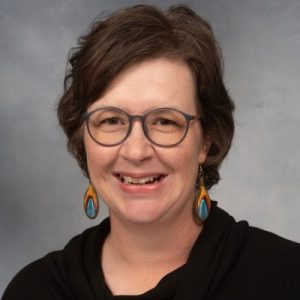
Governor Kelly Vetoes Bills, Allows One to Become Law Without Signature
TOPEKA— Governor Laura Kelly today vetoed Substitute Bill for Senate Bill 233, House Bill 2749, Substitute Bill for House Bill 2436, Senate Bill 434, House Bill 2446, and House Bill 2648. Governor Kelly also allowed Senate Bill 394 to become law without her signature.
The following veto message is from Governor Kelly regarding her veto of Substitute Bill for Senate Bill 233:
“This divisive legislation targets a small group of Kansans by placing government mandates on them and dictating to parents how to best raise and care for their children. I do not believe that is a conservative value, and it’s certainly not a Kansas value.
“To be clear, this legislation tramples parental rights.
“The last place that I would want to be as a politician is between a parent and a child who needed medical care of any kind. And, yet, that is exactly what this legislation does.
“If the legislature paid this much attention to the other 99.8% of students, we’d have the best schools on earth.
“Therefore, under Article 2, Section 14(a) of the Constitution, I hereby veto Substitute Bill for Senate Bill 233.”
The following veto message is from Governor Kelly regarding her veto of House Bill 2749:
“Kansans spoke loud and clear in August 2022. Voters do not want politicians getting between doctors and their patient by interfering in private medical decisions.
“House Bill 2749 is invasive and unnecessary. There is no valid medical reason to force a woman to disclose to the legislature if they have been a victim of abuse, rape, or incest prior to obtaining an abortion. There is also no valid reason to force a woman to disclose to the legislature why she is seeking an abortion.
“I refuse to sign legislation that goes against the will of the majority of Kansans who spoke loudly on August 2, 2022: Kansans don’t want politicians involved in their private medical decisions.
“There are some in the legislature who have forgotten that. I have not. Therefore, under Article 2, Section 14(a) of the Constitution, I hereby veto House Bill 2749.”
The following veto message is from Governor Kelly regarding her veto of Substitute Bill for House Bill 2436:
“While I agree that no one should be coerced into undergoing a medical procedure against their will, it is already a crime to threaten violence against another individual.
“Additionally, I am concerned with the vague language in this bill and its potential to intrude upon private, often difficult, conversations between a person and their family, friends, and health care providers. This overly broad language risks criminalizing Kansans who are being confided in by their loved ones or simply sharing their expertise as a health care provider.
“Therefore, under Article 2, Section 14(a) of the Constitution, I hereby veto Substitute Bill for House Bill 2436.”
The following veto message is from Governor Kelly regarding her veto of Senate Bill 434:
“I have serious concerns that deregulating sugaring — a hair removal technique that may be performed on minors — could lead to safety and sanitation problems. We have a responsibility to protect Kansans – and this deregulation would threaten the health and safety of Kansans – particularly our children.
“Under the purview of the Kansas Board of Cosmetology, sugaring practitioners are required to adhere to the same health and safety standards as other cosmetologists and estheticians. They are subject to criminal background checks and training prior to the successful completion of exams to earn state licensure. Deregulating sugaring risks contamination, improper infection control, and potential safety issues involving minors. I am not willing to undermine the Kansas Board of Cosmetology’s expertise or threaten the long-term health and safety of Kansans who receive sugaring services.
“Therefore, under Article 2, Section 14(a) of the Constitution, I hereby veto Senate Bill 434.”
The following veto message is from Governor Kelly regarding her veto of House Bill 2446:
“I believe in local control and that local officials should be held accountable by their constituents, stakeholders, and businesses. This bill lacks sufficient protection to ensure local units of government are able to play a meaningful role in decision making on issues impacting their communities.
“Therefore, under Article 2, Section 14(a) of the Constitution, I hereby veto House Bill 2446.”
The following veto message is from Governor Kelly regarding her veto of House Bill 2648:
“House Bill 2648 would insert bureaucratic red tape intended to legislatively interfere with the timely implementation of necessary and important rules and regulations. Many of these regulations are for the protection and safety of Kansans.
“Kansans voted no to giving the legislature veto power over rules and regulations in the November 2022 election. This is yet again another attempt by the legislature to undermine the will of the voters.
“Therefore, under Article 2, Section 14(a) of the Constitution, I hereby veto House Bill 2648.”
The following statement is from Governor Kelly regarding allowing Senate Bill 394 to become law without her signature:
“While well-meaning in its efforts to protect children from content the legislature considers ‘harmful to minors,’ this bill is vague in its application and may end up infringing on constitutional rights, which is an issue being litigated in other jurisdictions over similar bills. For that reason, I will allow this bill to become law without my signature.”
###

